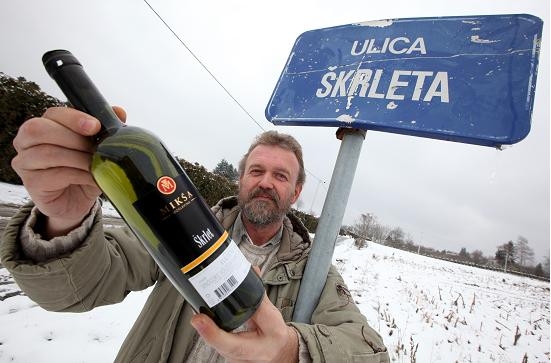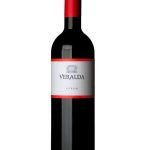For over 10 years lasted the clone selection of Škrlet, the indigenous variety of Moslavina. Among 10.000 vines, the best 80 were selected. The selection was then, by estimate of yield and quality and phenomenological and morphological characteristics, reduced first to 22, then to 12, passing the strictest health controls at the Grape Vine Institute in German Geisenheim and Australian virology laboratory in Adelaide, finally planted in 2008 in the plantation. Three of them were listed last year in the variety list of Croatia as the first registered clones of any grape variety in the country. Wines made from them were tasted at the workshop by Saša Špiranec at the Vino.com festival at the end of November, which began with fine and pleasantly bitter dry Škrlet Ilov0aka 2016 by the Nataša Đozo family farm. It holds 11.8% alcohol and 6.9 grams of acids per litre which gave it wonderful freshness. Followed a sweet Škrlet Kezele 2015. The winemaker said such wine is demanded by guests of his rural tourism and that he sells all he produces. This argument is hard to oppose, but such Škrlet variations will not advance the variety. The Škrlet Trdenić Private Collection was also from 2015. It aged 60 days on fine residue, which is good technology for wines of stronger varieties, but it did not fit the delicate and gentle Škrlet. Why things should be kept simple was shown by the 2016 Škrlet by Marko Miklaužić.
Finely balanced, with six grams of sugars and 6.2 grams of acids per litre and a low pH which hides the sweetness, a sign in which direction Škrlet should be taken. Next came the unusual Škrlet Florijanović 2015 which has two grams of sugar and is very sweet and Škrlet Košutić 2015, part of which aged in wood. They were followed by a more unusual but tastier experimental Škrlets Unikat and Orange by the Voštinić Klasnić winery from 2015. They are not for everybody, but with a good story and food they will have an audience. An audience will be easy to find for Škrlet Mikša 2016. Another playful and fresh wine, as Škrlet should be. Besides, all at the workshop agreed Škrlet should be turned into wines such as Pinot Blanc, Green Silvaner or Green Veltliner, not attempting to be like Chardonnay or Graševina.
For the original and more from Vino.hr blog on wine, click here.












